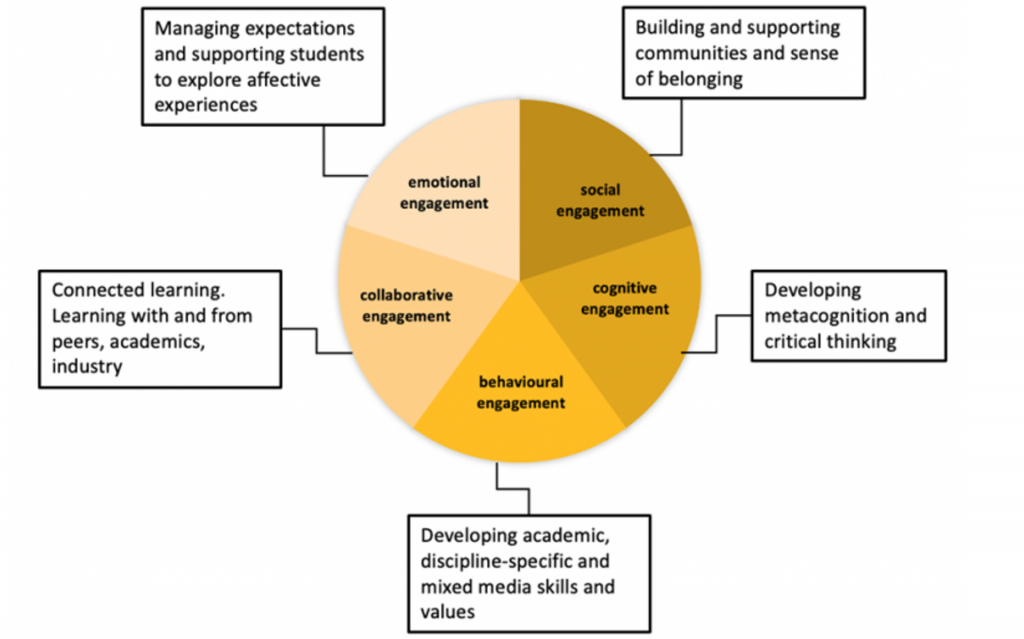Some colleagues and I were tasked with producing a ‘toolkit’ for other colleagues looking to improve/ optimise engagement. The toolkit can be seen in this online version of the ‘engagement’ toolkit or dowloaded from here in Word format. I hope colleagues find it useful.
What struck me most when talking about and reading around this topic is how problematic it is as a concept and how little time is actually given to deconstructing meaning and principles. We throw words like ‘engagement’, ’employability’ and ‘wellbeing’ (should it be hyphenated?) around, without even checking that we have a shared understanding of what we mean. The same could be said for ‘learning’ and ‘teaching’ too I suppose. For a start, engagement in activity is not a proxy for learning but is easily confused and conflated as such. Back when I was a sessional lecturer in several further education colleges many of the quality assurance processes in every place were informed by the lengthy shadow cast by Ofsted. As I recall, along with ‘differentiation strategies’ and ‘negotiated, individualised outcomes’ (I kid you not) we needed to show that we were on top of student engagement. So, lesson plans were expected to specify student engagement activities and observation forms sought ratings in terms of ‘successful’ engagement. I can imagine people asking ‘what’s wrong with that?’ and I suspect I didn’t question it then to be honest. I was aware that I was constructing an artifice in those plans and observed sessions though. What it tended to do (definitely in my case and certainly later in the case of many of the teachers I observed) was to encourage a cynical acknowledgement of this demand. You end up shoe-horning in activities where engagement (read: students being busy) is visible because the big problem was that only engagement that was in-your-face obvious was likely to count.
This is why I very much like the engagement framework suggested by Redmond et al. (2018) and is represented below. First, it encourages us to conceptualise types of engagement and secondly, and crucially in my view, implores us NOT to find ways to measure engagement but to eschew measurement and focus on developing an environment where different types of engagement are valued and fostered.

Online and blended engagement framework with definitions (adapted from Redmond et al., 2018)
Redmond, P., Abawi, L. A., Brown, A., Henderson, R., & Heffernan, A. (2018). An online engagement framework for higher education. Online learning, 22(1), 183-204.